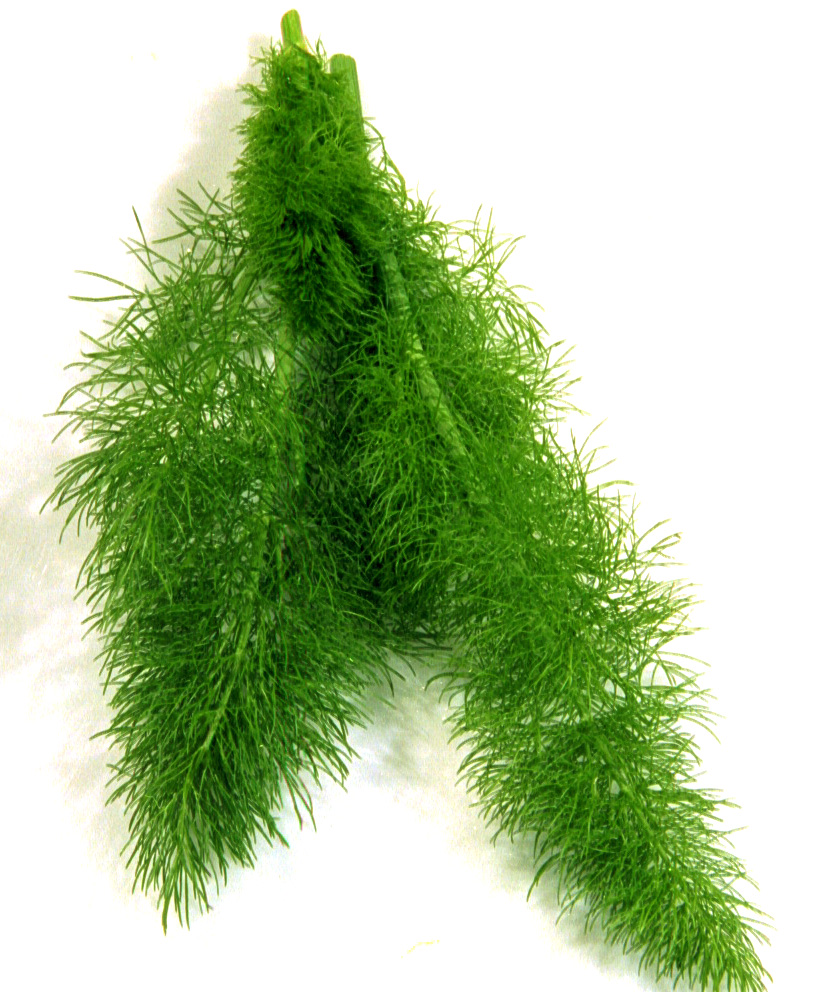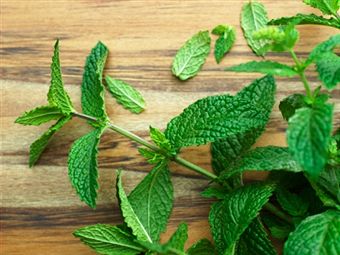Some are even known for stimulating new and lustrous hair growth.
Pampering and Treating yourself
Aromatherapy also has the added benefits of stress-relief, especially when combined with massage. Some of the following oils are even beneficial for alleviating depression, anxiety and headaches. So read on to discover the wonders of aromatherapy oils :)
Basil is great for controlling oily hair and dealing with stress. It even promotes hair growth.
(May irritate sensitive scalps)
Bay
is good for circulation, hair growth and improving the general health of the scalp.(May irritate sensitive scalps).is soothing, calming and relieves irritation. It helps to re-balance an oily scalp and alleviates dandruff.
 Chamomile is a mild, soothing and antiseptic. It can calm dry, irritated skin and is good for reducing the symptoms of dandruff and treating allergic reactions. It also aids in skin regeneration. Chamomile is used for fine to normal hair and can refresh and enliven golden highlights in the hair.
Chamomile is a mild, soothing and antiseptic. It can calm dry, irritated skin and is good for reducing the symptoms of dandruff and treating allergic reactions. It also aids in skin regeneration. Chamomile is used for fine to normal hair and can refresh and enliven golden highlights in the hair. 
Fennel
is anti-aging and cleansing. It is also balancing for an oily scalp and promotes the general health of the scalp.is up-lifting and balancing. It treats lice, poor circulation and stress.
Grapefruit
helps clear oiliness and promotes hair growth. It also alleviates stress, depression, headaches, tiredness and moodiness.
Lavender
is considered one of the safest oils and used for normal hair. It can also be used as a soothing and calming scalp treatment for itchiness, oiliness, dandruff and even lice! Lavender also treats depression and stress.Lemon removes sebum and acts as a very effective anti-bacterial treatment for dry scalp, oily/greasy scalp, dandruff, lice, and underactive sebaceous glands. It can also be used to improve circulation, concentration levels and energy levels whilst reducing stress and alleviating headaches.
Lemon is can also enhance golden highlights.
(Avoid direct sunlight exposure when using lemon oil)
Myrrh is a great oil for detoxifying and alleviating skin ailments. It treats dry hair, dandruff and lice, and regulates oil production; especially under-active sebaceous glands.
Neem oil has a very strong smell; a combination of peanut and garlic. It helps reduce scalp inflammation and itching and is able to treat head lice too.
Patchouli stimulates cell regeneration and is able to treat a number of scalp disorders. It is great for removing dandruff and controling oil production.
(Has a very strong smell which some people can't tolerate and large doses may trigger appetite loss).
is refreshing and cooling. It helps reduce redness, itchiness and irritation. It's great for itchy dandruff problems and cooling inflammation on the scalp. Peppermint is used for dry hair. It promotes hair growth and is beneficial for treating headaches and stress.
(Avoid if your skin is sensitive to menthol. Should also not be used for small children).
** ROSEMARY **
 is the wonder oil of essential oils for the hair as it has a pronounced, positive effect on the health of the hair and scalp. With a pleasant, tantalizing and stimulating smell, it increases the circulation to the scalp and is especially known to help promote and stimulate hair growth. Rosemary oil is great for treating scalp disorders (eg. oiliness and dandruff). It is also beneficial for alleviating headaches and migraines. When added to shampoo it not only increases the circulation to the scalp and thereby improving hair growth, but also acts as a general conditioner and tonic for the hair and scalp. It furthermore stimulates the brain, improves memory and promotes clear thinking too!
is the wonder oil of essential oils for the hair as it has a pronounced, positive effect on the health of the hair and scalp. With a pleasant, tantalizing and stimulating smell, it increases the circulation to the scalp and is especially known to help promote and stimulate hair growth. Rosemary oil is great for treating scalp disorders (eg. oiliness and dandruff). It is also beneficial for alleviating headaches and migraines. When added to shampoo it not only increases the circulation to the scalp and thereby improving hair growth, but also acts as a general conditioner and tonic for the hair and scalp. It furthermore stimulates the brain, improves memory and promotes clear thinking too!(However it is not suitable for people suffering from epilepsy or high blood pressure).
Sandalwood
is calming and relaxing. It relieves a dry, dehydrated scalp, itching and inflammation, alleviates stress and depression and has anti-aging properties. It also has a balancing effect on oily scalp. Tea Tree cleanses and purifies. It is anti-bacterial and immune-boosting. Great for treating mild dandruff, head lice and regulating the sebaceous glands - oily/dry scalp.
Tea Tree cleanses and purifies. It is anti-bacterial and immune-boosting. Great for treating mild dandruff, head lice and regulating the sebaceous glands - oily/dry scalp. (Not suitable for sensitive skin; may cause an allergic reaction. Also not to be used on open skin as it is very potent).
Ylang-ylang is fragrant oil which is soothes, calms and balances - good for the body, mind and soul. It helps to balance skin regeneration and stabilize sebum production (oily/dry/dandruff). It also has a stimulating effect on the scalp which promotes more luxurious hair growth.
(Over usage or large doses can cause nausea and headaches in some people. May also cause sensitivity).
Since I'm not an expert in aromatherapy I won't be telling you how to mix any of the oils for your personal needs; I am merely highlighting the benefits of essential oils and would like to promote an appreciation for aromatherapy in hair care, as you may find more and more brands using oils in their products, especially shampoo.
What is even more exciting is that the more forward-thinking brands are even incorporating essential oils into their styling products, meaning we will be treating our hair and scalp (and also our bodies) to soothing, healing formulas rather than the old chemical formulas with parabens and perfumes (no perfumes are needed when using essential oils as they provide naturally pleasing fragrances). For more information, see my blog posts about Naturalmente.
CAUTION:
Do not use essential oils on broken or irritated skin. In high concentrations, essential oils may irritate sensitive skin.
Never apply directly to the skin without mixing with a base or carrier oil (eg. Jojoba oil, Olive oil, Hazelnut oil, Sesame oil, Hemp Seed oil, Almond oil, Grapeseed oil or Soybean oil). Keep out of reach of children. Keep away from the eyes. Do not ingest.
Seek medical advice if pregnant, suffering from epilepsy, or using homeopathic remedies.
If you enjoyed this post you may also enjoy: Caring for a Sensitive Scalp
Healthy Hair From The Inside Out
Treat Your Tresses











No comments:
Post a Comment